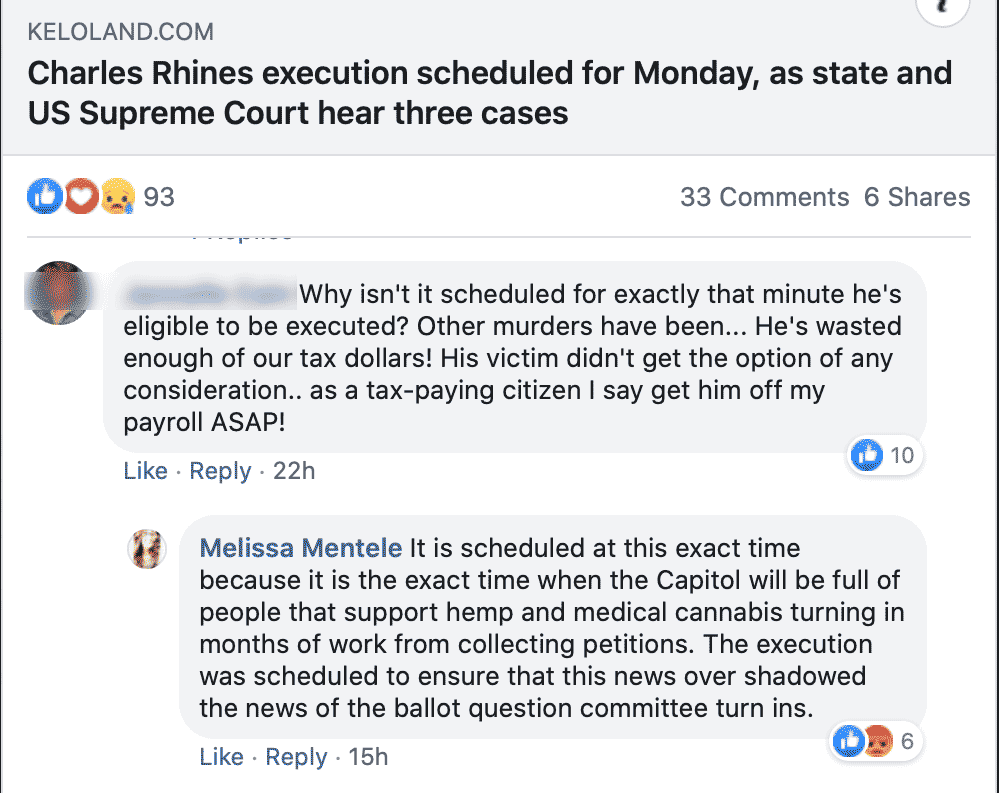

Thune, Colleagues Introduce Bipartisan Bill to Increase Internet Platform Transparency and Provide Consumers With Greater Control Over Digital Content
WASHINGTON — U.S. Sens. John Thune (R-S.D.), Richard Blumenthal (D-Conn.), Jerry Moran (R-Kan.), and Marsha Blackburn (R-Tenn.), members of the Senate Committee on Commerce, Science, and Transportation, which has jurisdiction over the internet and consumer protection, and Mark Warner (D-Va.) today introduced the Filter Bubble Transparency Act. The bill would require large-scale internet platforms that collect data from more than 1 million users and gross more than $50 million per year to provide greater transparency to consumers and allow users to view content that has not been curated as a result of a secret algorithm. The Filter Bubble Transparency Act would make it easier for internet platform users to understand the potential manipulation that exists with secret algorithms and require large-scale platforms to allow those users to consume information outside of that potential manipulation zone or “filter bubble.”
“This legislation is about transparency and consumer control,” said Thune, chairman of the Subcommittee on Communications, Technology, Innovation, and the Internet. “For free markets to work as effectively and as efficiently as possible, consumers need as much information as possible, including a better understanding of how internet platforms use artificial intelligence and opaque algorithms to make inferences from the reams of personal data at their fingertips that can be used to affect behavior and influence outcomes. That’s why I believe consumers should have the option to either view a platform’s opaque algorithm-generated content or its filter bubble-free content, and, at the very least, they deserve to know how large-scale internet platforms are delivering information to their users.”
“Consumers deserve to control their own online experiences instead of being manipulated by Big Tech’s algorithms and analytics,” said Blumenthal. “So much of what we do online is increasingly being shaped – without our knowledge or consent – by the companies that own those platforms, which use our personal data to choose what information consumers see or don’t see. Our bipartisan bill will allow consumers to regain some control over their online experience by letting them simply opt out of the filter bubble.”
“Throughout recent efforts to identify meaningful consumer protections in an increasingly complex and innovative tech economy, a concept that has been consistently identified as a key component has been the request for increased consumer education and awareness of how personal information is being collected, processed and repurposed,” said Moran, chairman of the Subcommittee on Manufacturing, Trade, and Consumer Protection. “This legislation not only seeks to increase consumer awareness, but also requires companies to offer certain products and services to consumers free of manipulation. I look forward to working with my Senate colleagues on providing appropriate consumer protections without disproportionately harming innovation.”
“When individuals log onto a website, they are not expecting the platform to have chosen for them what information is most important,” said Blackburn. “Algorithms directly influence what content users see first, in turn shaping their worldview. This legislation would give consumers the choice to decide whether they want to use the algorithm or view content in the order it was posted.”
“As we’ve seen over and over, consumers have limited understanding of how their data is being used and how platforms operate,” said Warner. “This bill helps reduce the power of opaque algorithms on our discourse and put greater control in the hands of consumers.”
“Online algorithms shape what we get to see online, but they’re hard to understand because they’re invisible – it’s difficult to tell how your feed differs from that of your friends or neighbors,” said Eli Pariser, chief executive of Upworthy and author of The Filter Bubble: How the New Personalized Web Is Changing What We Read and How We Think. “The Filter Bubble Transparency Act is a big step toward making these algorithms more visible – helping consumers understand how they work, how significant these editorial choices really are, and giving people the choice to see the world in a less filtered way. We need common ground and a common sense of the truth now more than ever, and I’m glad this bipartisan group of senators is taking up that important charge.”
“Filter bubbles divide and conquer,” said Shoshana Zuboff, professor emerita at Harvard Business School and author of The Age of Surveillance Capitalism: The Fight for a Human Future at the New Frontier of Power. “We are trapped unaware inside these bubbles, without the rights to know, escape, or resist, even as we now understand the dangerous political and social consequences of these commercial systems. The Filter Bubble Transparency Act begins the work of breaking this manipulative and divisive cycle. The bipartisan sponsorship of this Senate bill reflects a new era of lawmaking determined to shape a digital future that is good for people, good for shared prosperity, and good for democracy.”
The Filter Bubble Transparency Act would require large-scale internet platforms, as defined by the legislation, to:
- Clearly notify its users that their platform creates a filter bubble that uses secret algorithms (computer-generated filters) to determine the order or manner in which information is delivered to users; and
- Provide its users with the option of a filter bubble-free view of the information they provide. The bill would enable users to transition between a customized, filter bubble-generated version of information and a non-filter bubble version (for example, the “sparkle icon” option that is currently offered by Twitter that allows users to toggle between a personalized timeline and a purely chronological timeline).
The Filter Bubble Transparency Act would make it unlawful for any person to operate a covered internet platform that uses a secret algorithm unless the platform complies with the two above requirements. The Federal Trade Commission would enforce the legislation’s requirements, and it would be authorized to seek civil penalties for knowing violations.
In June 2019, Thune led a hearing entitled, “Optimizing for Engagement: Understanding the Use of Persuasive Technology on Internet Platforms,” in which he pressed technology experts, including current and former Google employees, on how algorithmic decision-making and machine learning on internet platforms influences the public.
Thune, Blumenthal, and Moran have been actively engaged with other Commerce Committee members as they work toward finding consensus on a bipartisan national data privacy bill, and they, including Blackburn and Warner, believe the Filter Bubble Transparency Act could be an important part of this broader discussion.
###







